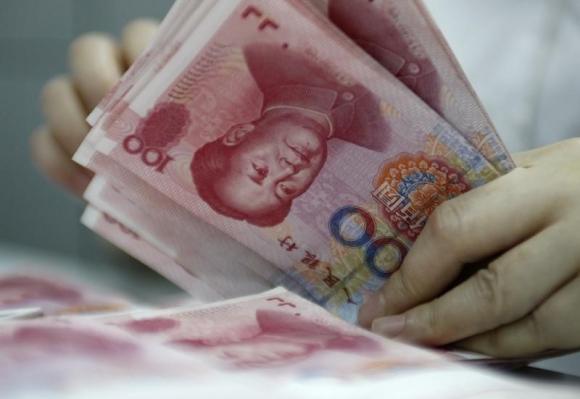How promising is the cutting of red tape?
 |
|
An employee counts yuan banknotes at a bank in Huaibei, Anhui province June 22, 2010.[Photo/Agencies] |
The government made amazing achievements in 2016. At a press conference during this year's session of the National People's Congress, the top legislature, in March, Premier Li Keqiang said the government had already abolished one-third of the unnecessary administrative licenses and will reduce them by half by the end of the year.
That promise has been fulfilled. By early December, the State Council, China's Cabinet, had canceled 222 unnecessary vocational licenses for employees and more than 50 approval procedures for investment programs.
The importance of simplifying administrative procedures can never be overestimated. Complicated administrative procedures not only impose additional economic costs on enterprises, they also force enterprises to spend more time to complete them. Just to open a small shop you have to purchase dozens of stamps. This time-and energy-consuming procedure is not conducive to doing business.
Unlike 2014 and 2015, the administrative procedure reform this year focused on reducing the requirements for investment programs, which was necessary because enterprises need a lower threshold for investment so as to have more vitality.
But the reduction of requirements allowed investors to save only time, not economic costs. The tax burden on domestic enterprises is still quite high. For example, Cao Dewang who runs a glass manufacturing business went online to complain about the burden of heavy tax on enterprises. Cao's video has been widely circulated on the internet and many entrepreneurs have voiced similar complaints.
So once the administrative procedures are simplified, the government should deepen the reform by cutting taxes to reduce the economic costs of enterprises, which in turn will boost the economy.
Easing the tax burden of enterprises is likely to be fraught with difficulties, because it will challenge some vested interests. So implementing the reform will be a test for the authorities.
Only when the authorities abolish the majority of the unnecessary administrative procedures and fees, and ease the tax burden can enterprises save both time and economic costs, and enjoy the dividends of the reform.
Next year, the higher authorities have to take several measures to expedite the pace of the reform. To begin with, they should instruct local governments to follow in the footsteps of the central ministries and departments, which have been simplifying their administrative procedures for years. Some provincial-and city-level governments, too, have been doing the same. But since lower-level governments deal more directly with the people than the higher ones, the administrative procedure reform will be a comprehensive success only when lower-level governments follow the central government's rules.
And since some officials could lose their powers because of the reform, they are reluctant to implement it and thus curbing economic growth and causing inconvenience to the people. Besides, some local officials idle away their working hours, slowing down the governance reform. The central leadership should take steps to remove these obstacles by more strictly regulating civil servants.
The author is a professor of public governance at Peking University. The article is an excerpt from his interview with China Daily's Zhang Zhouxiang.









